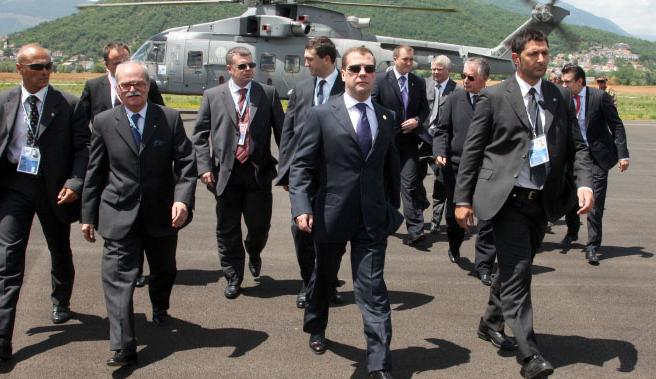Tony Blair Saves Africa!
When I was young, naive and ignorant both of humanity’s complexity and my own limitations, I believed I would one day save the world. Once I reached adulthood, I thought, the willpower and abilities I possessed would be sufficient to wipe out poverty and put an end to conflict.
Then I grew up. I slowly realised that the world was not for saving, much less by one individual, and least of all by me. As I studied history, I realised too that the only people who still believed they could save the world having reached adulthood were dictators or madmen, and that their efforts always ended in failure.
It turns out, however, that I grew cynical too soon, and that in reality it is possible for one man to save the world, or at least a large part of it. Tony Blair, the former British prime minister, believes that he has singlehandedly rescued Africa from poverty and underdevelopment. In an article on the Guardian website which must be either a push for a Nobel Prize or a pitch for a job at the UN or World Bank, he argues that all of the recent socio-economic improvements that have taken place in Africa resulted from his own focus on increasing international aid (he has nothing to say about the many African countries that have yet to see any improvement).
The beginning of Africa’s salvation, Blair claims, came at the Gleneagles G8 summit which Britain hosted in 2005. His role in the summit was crucial for Africa. As he reports:
Summits with genuine, long-lasting outcomes are rare. But as we started planning for the Gleneagles G8 meeting in 2005, I saw that it could be one of these rare ones – a summit about changing the world…
I decided to put Africa at the top of the agenda for Gleneagles…And it worked. Today, the positive legacy of that summit is still being felt across Africa: aid was doubled and developing world debt dropped.
Now an increase in aid is not, of course, an end in itself. Large quantities of aid given to Africa over the decades have been squandered on entrenching corrupt elites or padding the overseas bank accounts of dictators, with little impact on the quality of life of ordinary Africans. Gleneagles, however, not only increased the quantity of aid; it apparently dramatically increased its effectiveness. Here is Blair again:
I want to answer the aid sceptics – those who think aid doesn’t work or is all swallowed up in corruption. Look at the facts. In Africa since 2005, the rate of children dying before their fifth birthday has fallen by 18%. The proportion of people in Africa living in extreme poverty is down by nearly 10%.
It is undeniable that the latter two sentences are facts, but Blair offers no evidence that they have anything to do with an increase in aid. That they might have had more to do with increased investment in and trade with Africa by China, remittances and ideas sent from the diaspora, high commodity prices, or anything Africans living in Africa might have done is a possibility Blair is either unaware of or, because it does not fit with his messianic self-image, has no interest in highlighting. He even takes the credit for foreign investment. He writes:
Africa is among the fastest-growing regions in the world. The Gleneagles agreement can claim some credit for this; bilateral aid for trade to sub-Saharan Africa has almost doubled between 2005 and 2011. Foreign direct investment in the continent has increased by 87% in the past 10 years.
Again, no evidence is presented linking aid to fast growth – it is merely hoped that the juxtaposition of the two things will convince the unwary reader. Even Blair’s buddy Bob Geldof doesn’t have the chutzpah to attribute China’s growing influence in the continent to Gleneagles, admitting in an otherwise tub-thumping piece today (in which he refers to Africans as ‘the people you kept alive all those 30 years ago’ and to Africa’s success as ‘Blair’s lasting legacy’) that trade was not discussed at the Scottish summit. Blair, though, is in no doubt. ‘The last decade of development progress was defined by aid,’ he announces.
Blair does admit that despite his efforts Africa is not yet a utopia, and that improvements can still be made. Fortunately, he has the answers for these too. ‘After leaving office,’ he writes, ‘I set up the Africa Governance Initiative to continue my work on that forgotten half.’ The forgotten half refers to ‘the ability of governments in developing countries to get things done.’ In Blair’s world aid alone, or at least the aid he generated, has rescued Africa – the region’s governments have had nothing to do with it and like their people, who have thrived only since he decided to help them, can do little without his assistance.
Blair has one final piece of evidence, in case we remain unpersuaded that he is Africa’s saviour. ‘The very fact that people are still talking about Gleneagles eight years on shows that we were right to be ambitious, to change the debate.’ he writes. We will have to take his word for it that Gleneagles remains the talk of the town, and the argument that noise proves success is at least no flimsier than some of his other contentions. It’s certainly strong enough for the image-conscious Blair, who concludes his article by proclaiming that ‘the journey from Gleneagles to long-lasting development in Africa is not over [there was, it seems, no journey before the summit]. But Africa is on the move and if we keep going on the whole Gleneagles agenda…the continent will be transformed. So I’m proud to say that Gleneagles has turned out to be that rare thing – a summit that matters.’ If anywhere else in the world needs rescuing, they know who to call.




